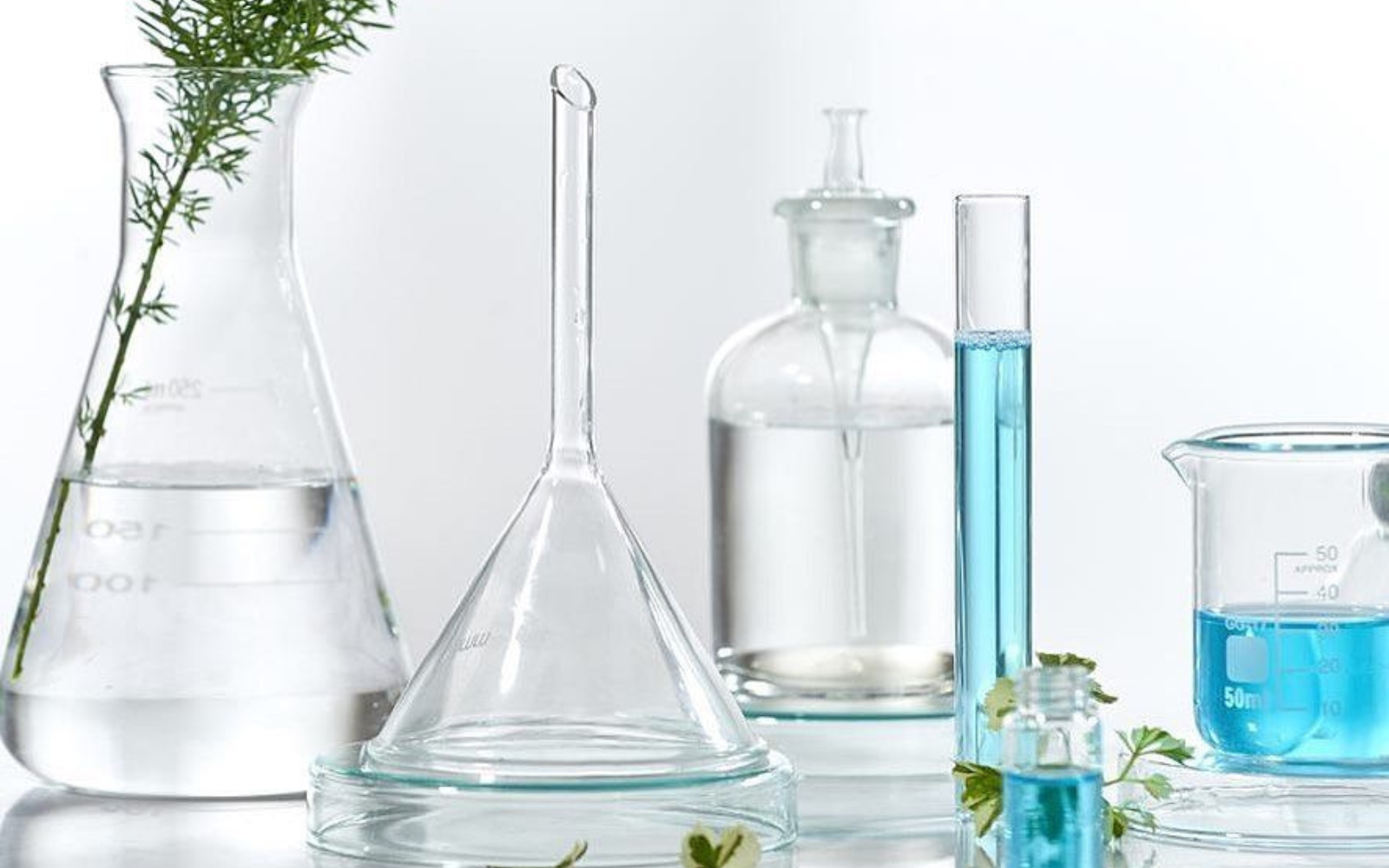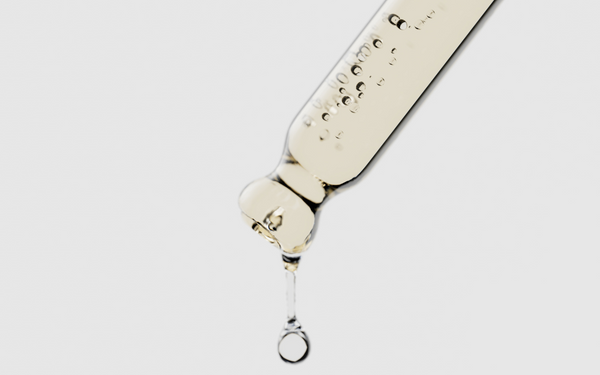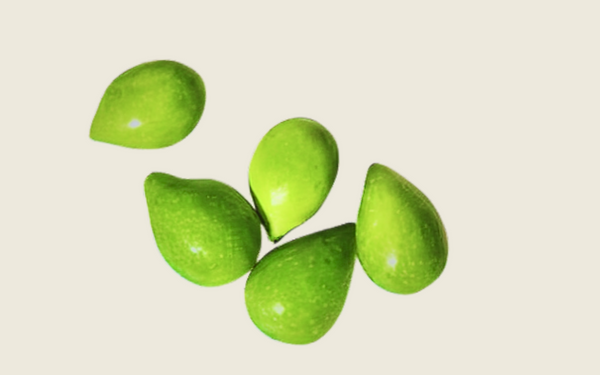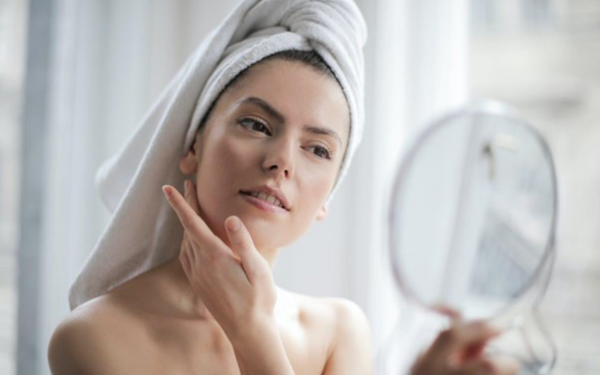Toxic Beauty

Did you know the beauty industry has an ugly secret?
Unfortunately when it comes to skincare and cosmetics, the regulations are lax “organic” and “natural” does not always mean the product contains solely natural or organic ingredients.
Your favourite makeup, face cream, body lotion, or cleanser may deliver short term smoothness and brightness, but it may disrupt hormones, expose you to known cancer causing pesticides, and deliver dangerous toxins that absorb and age your skin. That’s right, scary isn't it?
Our skin is our largest organ and daily we expose it to hundreds of toxic synthetic nasties! As it is living and breathing anything you apply to it topically is likely to be absorbed directly into your bloodstream, Transdermal patches like Nicotine patches prove this.
The good news is by being a little more aware you can change this. Choose to be more aware and read every ingredient on your labels.....learn the lingo! Then work on replacing bad for good. Just like food you have to be vigilant as its surprising how many product formulations are change without the consumer knowing.
I know how hard it can to be to get it 100% perfect but any step, no matter how small it be gets you closer to living a much healthier life.
I would also like to challenge you with spreading the word to one of your family member or friends. Being a more informed shopper starts with education and so many people out there have no idea that chemicals in products we use every day are harmful to themselves and their families.
So now lets take a little time to review some of the biggest offenders. These are the Top 6 ingredients to avoid at all costs. You will find many more out there but I wanted to make it simple and give you a place to start.

PARABENS
I am sure most of you have heard the word paraben, as they have been widely criticised for many years and unfortunately they are still in so many beauty products out there. You will most likely find them near the end of the ingredient list and you will also find them in multiples so they are pretty easy to spot. Some examples include ethylparaban, butylparaban, methylparaban . Parabens are a preservative added to give products a longer shelf life. They are inexpensive for manufactures to buy so that’s why you see them popping up in lots of products. Parabens have been found to be hormone disruptors and there is research out there that links them to certain types of cancer.
PHTHALATES
The biggest concern with phthalates is they are linked to bioaccumulation, which means they absorb at a rate faster than our body can expel them so they build up and become trapped in the body forever!
Phthalates are used as plasticisers and solvents, and can be found in fragrances, hair products, skin lotions, nail polish and nail hardeners. They have been found to have endocrine disruption effects, and have been linked with endometriosis and early puberty in girls, and reproductive organ abnormalities and reduced fertility in males. They can also act on the thyroid, and have been linked with obesity. In light of these concerns, several phthalates have been banned for use in cosmetics in Australia: dibutylphthalate, diethylhexylphthalate, diisobutylphthalate and di(methyloxyhexyl)phthalate.
PEG’s - SUCH AS PROPYLENE GLYCOL
A big issue with PEG’s is that more times than not the chemical is found to have impurities such as heavy metals and a known carcinogen called 1,4-dioxane. These chemicals are used as emollients to help soften and lubricate the skin, emulsifiers which help water-based and oil-based ingredients mix properly and humectants which means they retain water in the skin.
They can easily penetrate the skin weakening protein and cellular structure. Propylene Glycol is a solvent so powerful it can dissolve through a stainless steel tank in 48 hours, so it has to be stored in plastic drums. The EPA considers Propylene Glycol so toxic that it requires workers to wear protective gloves, clothing and goggles. However, Propylene Glycol is used in some products in concentrations of up to 20%.

SODIUM LAURYL SULPHATE (SLS)
We have all definitely heard the word sulphate. These chemicals are what causes shampoos and hand soaps to foam and its in more than 90% of beauty care and cleaning products so you really have to go out of your way to avoid it. It is even in your toothpaste!
It’s even in many “natural” products you think would be automatically safe so make sure to read the ingredients. It tends to always be one of the first ingredients so is easy to spot pretty quickly. Exposure to SLS is known to cause eye damage, depression, diarrhea and many other ailments. When these are used in combination with other chemicals they can form nitrosamines, a potent class of carcinogen. Studies have shown that SLS stays in the body for up to five days.
TRICLOSAN
This chemical is registered as a pesticide and is classified as a chlorophenol, a class of chemicals suspected of causing cancer in humans. Applied topically chlorophenol can cause a variety of skin irritations. However it can temporarily deactivate sensory nerve endings so contact with it may cause little or no pain.
Taken internally this chemical can produce cold sweats, circulatory collapse, convulsions, coma and even death.
With long term exposure it has been proven to damage the liver, kidneys, heart and lungs, suppress the immune system, and cause hormonal disruption, paralysis, sterility and brain hemorrhages.
Triclosan is so toxic it is measured in parts per trillion. To illustrate-one drop of Triclosan in 300 Olympic-sized swimming pools can cause hormonal disruption!
I challenge you to find this on a label in your home.... here’s a hint if you use a brand of toothpaste that has the word total in it you might find it.

PETROLATUM / MINERAL OIL
We have been smearing this on ourselves for years and our children too! Baby Oils which are often 100% Mineral Oil, lipsticks, lip balms, make-up, paraffin and Vaseline Petroleum Jelly the list goes on . It is known to have the ability to trap moisture and improve healing up skin but keep in mind this may come with a cost.
Mineral oil can’t penetrate into the deep skin layers and coats the skin like plastic wrap, which stands in the way of the skin's natural function of releasing toxins from the body promoting acne and other skin disorders. It slows the skin's natural cell development, causing the skin to age prematurely and many mineral oils have been shown to be contaminated with cancer causing polycyclic aromatic hydrocarbons a byproduct of fuel burning.
Well i guess by now you may be thinking a little differently when popping on your lippy or washing your little ones hair.
I know it’s not realistic to just throw everything out and start over so my advice would be to follow the “one in one out” policy. Every time you run out of a product replace it with something healthier.
Don’t forget, your skin is your body’s largest organ. It serves many protective functions and it’s important that we keep it in top shape so it can effectively continue doing its job.
Thanks for reading ...... Cass x
Share:
Leave a comment
Comments will be approved before showing up.







